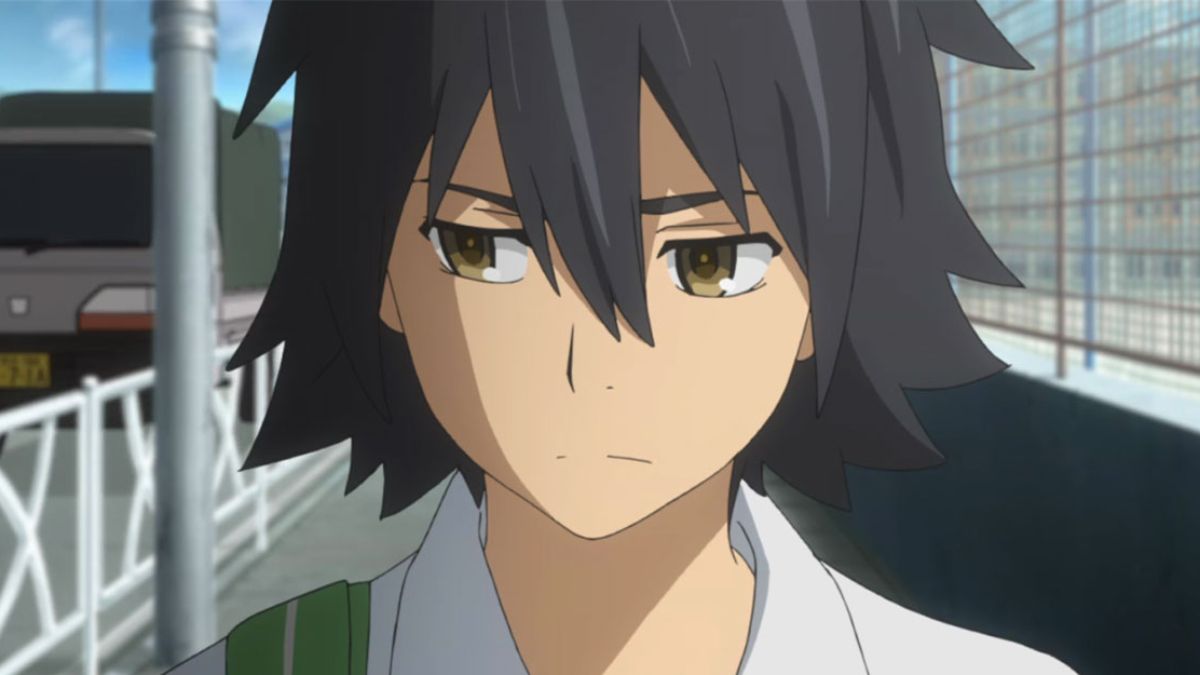Introduction
In the ever-shifting landscape of anime and manga fandom, one name has etched itself into the collective consciousness of digital voyagers: nhentai.het. Part subculture phenomenon, part lightning-rod controversy, this underground hub for adult-oriented fan creations has sparked debates about free expression, censorship, and the ethics of erotic art in the digital age. From its humble beginnings as a community archive to its current status as a lightning-rod for “anime+” conversations, nhentai.het has become shorthand for the complicated intersection of fandom, creativity, and moral panic.
This article peels back the layers on nhentai.het—tracing its origins, examining its cultural impact, exploring legal challenges, and asking what it means for the future of anime and manga fandom worldwide. We’ll speak to the defenders who champion it as a safe haven for uncensored creativity, the critics who decry its explicit content, and the wider implications for online communities in a post-#MeToo era. Strap in; we’re about to dive into a world where lines are blurred, taboos are broken, and the very definition of fan art is constantly reinvented.
The Genesis of a Digital Archive
From Forum Threads to Curated Catalog
The story of nhentai.het begins in the early 2010s, when a constellation of anime enthusiasts on forums like 4chan and Reddit sought to compile erotic doujinshi—self-published manga—into one easily searchable archive. What started as a handful of Dropbox links tucked into off-topic threads quickly morphed into a sprawling catalog of tens of thousands of titles. By 2015, nhentai.het emerged as the de facto destination for anyone chasing “unofficial” or fan-made erotic manga labeled under various tags: yaoi, yuri, futanari, and beyond.
The site’s bare-bones interface—white text on charcoal-gray, hyperlinked tags for each title—belied a meticulously organized database. Contributors uploaded scans, tagged content by fetish, artist pseudonym, or thematic trope, and then vanished back into the anonymity of the internet. Moderators, often volunteers, vetted submissions for copyright infringement and malware, creating a semblance of quality control in an otherwise chaotic corner of the web.
Naming the Unnameable
Why “nhentai.het”? The prefix “nhentai” was a playful twist on the Japanese word hentai (変態), loosely translated as “pervert” or “perverted.” But the addition of “.het” served a dual purpose: a nod to “heterodox” or “heterogeneous”—a reminder that the archive embraced every kink under the sun—and a wink to the heyday of fan-made domains like “.me” or “.net.” Over time, the brand stuck. Today, typing “nhentai.het” into search bars around the globe communicates a shared understanding: a repository of adult fan creations unshackled by the constraints of mainstream publishing.
The Allure of Fan-Made Erotica
Community-Driven Creativity
At its heart, nhentai.het thrived on community. Unlike official publishers or glossy magazines, it offered a stage for amateur artists to flex their creative muscles. A shy illustrator in Manila could share a one-off doujin about two schoolgirls with magical powers, no editorial gatekeepers slowing the process. A group of college friends in São Paulo could collaborate on a sci-fi bondage romp, distributing it instantly to an international audience.
This democratization of erotic manga served two major impulses: the desire for representation and the thrill of taboo. Readers hungry for narratives that mainstream hentai studios wouldn’t touch—be it LGBTQ+ storylines, niche fetishes, or boundary-pushing experimentation—found a goldmine. Conversely, creators could test the limits of their art without fear of corporate censorship or reputational fallout.
The Tagging Economy
One secret to nhentai.het’s success lies in its exhaustive tagging system. Over 20,000 user-generated tags categorize content by character archetype (e.g., “tsundere,” “kuudere”), scenario (“teacher-student,” “sibling”), and fetish (“tentacles,” “feet”). A reader seeking “glasses + latex” can filter down to precisely the doujinshi that cater to that specific combination.
This granular approach spawned micro-communities around obscure kinks, turning what might have been a 10-page side note into a multi-chapter saga. And because every tag links forward and backward, endless rabbit holes of discovery beckon—often leading a casual browser into realms they never intended to explore.
Navigating the Legal Minefield
Copyright vs. Fair Use
Doujinshi dwell in a legal gray zone. Strictly speaking, many fan works on nhentai.het infringe on existing intellectual property—characters, settings, and storylines owned by major studios. Japanese publishers, from Shueisha to Kadokawa, have historically tolerated doujin culture as a form of free promotion, only cracking down when sales or corporate reputation are at risk.
In the West, however, copyright enforcement is far more litigious. Studios like Toei or Disney have pursued takedown notices for unauthorized fan content. nhentai.het’s operators, headquartered in jurisdictions with lenient hosting laws, often receive DMCA requests but are under no strict obligation to comply. Instead, they rely on a rotating cast of mirror sites and domains, shifting web hosts like ghosts in the machine.
Obscenity and Age Verification
Beyond copyright, there’s the thorny issue of obscenity. What constitutes “illegal” erotic content varies wildly across countries—and some doujinshi push those boundaries. A story depicting consensual violence or fantastical minors in erotic scenarios might be legal in Japan under certain interpretations but banned outright in the U.S., U.K., or Australia.
nhentai.het skirts these challenges by adopting a laissez-faire approach: no age verification system, no rigorous content warnings, just a single page stating “18+ only.” Critics argue this cavalier attitude normalizes underage exploitation or non-consensual tropes under the veneer of fiction. Defenders retort that censoring fantasy impinges on free expression and that enforcing global legal standards on a decentralized archive is both impossible and philosophically dubious.
Ethical Reckonings in Fandom
The Consent Conundrum
Within the community, schisms have emerged. A faction argues that erotic art—even the most transgressive—should remain uncensored so long as it involves fictional characters. They point out that the very concept of fiction precludes real-world harm: no actual person is abused in the making of a hentai doujin featuring tentacled aliens.
Opponents counter that portraying such scenarios, particularly those mimicking sexual violence or underage relationships, can desensitize consumers and perpetuate harmful attitudes. They advocate for a middle ground: allow adult consensual content but ban material that glamorizes abuse. nhentai.het remains split; tags like “rape” or “loli” still exist, though some mirror sites purge them under user pressure.
The Paradox of Anonymity
The anonymity that empowered creators on nhentai.het also shields them from accountability. Artists facing backlash for “problematic” content—racist stereotypes, misogynistic tropes—can vanish overnight, only to re-emerge under a new pseudonym. On one hand, this protects creative freedom; on the other, it stymies constructive dialogue about representation and ethics in erotic art.
Some community members have experimented with verified-artist programs, requiring ID checks to ensure real-world accountability. Yet these initiatives struggle against the site’s ethos of frictionless sharing: any barrier, however small, risks fracturing the vast network of contributors.
Cultural Impact and the Mainstream Shift
From Niche to Notorious
In the mid-2010s, nhentai.het was whispered about in circles of dedicated otaku. By 2020, it had transcended niche status. Journalists from Vice and Kotaku penned exposés; university sociologists cited its tag network as a case study in folksonomy. Memes about browsing “just one page” at work went viral; employers began blocking “nhentai” on corporate firewalls, a badge of digital rebellion for Gen Z.
This notoriety, paradoxically, fueled its growth. Like a scandal-ridden celebrity whose following surges after each tabloid exposé, nhentai.het became “forbidden fruit.” Its open accessibility combined with the thrill of contraband made it irresistible to both hardcore fans and casual voyeurs.
Influence on Official Productions
Ironically, the mainstream anime industry has taken note. Some smaller studios now produce official erotic spin-offs that resemble fan doujinshi in tone and style—think short OVA episodes with fan-service aplenty, released directly to streaming platforms. Even major licensors have relaunched eco-friendly print runs of popular doujinshi anthologies at conventions, legitimizing what was once strictly underground.
This cross-pollination blurs the line between “fan art” and “canon.” Characters and concepts incubated in nhentai.het sometimes make their way back into official manga line-ups, albeit with toned-down eroticism. In effect, the archive has become both muse and market tester for mainstream producers hunting the next viral sensation.
The Technological Backbone
Tag-Driven Discovery Algorithms
At its core, nhentai.het is less a website than a constantly evolving recommendation engine. Behind the scenes, algorithms track which tags co-occur most frequently, which artists garner repeat engagement, and which new fetishes are on the rise. This data feeds personalized “Recommended for You” sections—an uncanny echo of Netflix’s “Because you watched…” feature, albeit for erotic manga.
Sophisticated users employ browser extensions to export tag-occurrence statistics, charting their consumption over months or years. These personal analytics tools reveal surprising patterns: a spike in “yuri” during Women’s History Month, a surge of “futanari” tags after major cross-gender voice-acting announcements in Japanese anime.
Resilience via Decentralization
Given its legal and moral vulnerabilities, nhentai.het has embraced decentralization. Multiple mirror domains rotate hourly; the database is periodically seeded on peer-to-peer networks like IPFS. Some die-hard fans even maintain offline archives via encrypted USB drives, trading terabytes of doujinshi at anime conventions under the counter.
This technological resilience makes takedown efforts Sisyphean. For every domain shuttered by a court order, five more sprout in different countries. Yet this guerrilla strategy comes at a cost: site performance can be spotty, and mirror fragmentation leads to inconsistent tagging standards, frustrating users seeking rare content.
The Human Stories
Artists in the Shadows
Consider “Haru M.,” a pseudonymous artist in Kyoto who began uploading her self-published hentai manga to nhentai.het in 2016. Drawing on her own experiences of heartbreak and longing, she crafted bittersweet stories of lovers separated by time travel. Her gentle treatment of emotion within erotic scenarios struck a chord: her works amassed millions of views, all without her real name ever surfacing.
Yet with fame came stress. Haru faced doxxing attempts, unsolicited commissions for illegal content, and the burden of moderating her comment threads. By 2022, she had shifted to a Patreon-style platform requiring subscribers to vouch for their age and abide by community guidelines. Her journey illustrates the fine line between creative liberation and personal vulnerability in the age of nhentai.het.
Readers United by Desire
On the flip side, fans like “Carlos,” a graphic design student in Mexico City, describe nhentai.het as a lifeline. Struggling with social anxiety, he found community through shared commentary threads. “People here get my weird obsessions,” he says. “I found art that speaks to me, not just generic fan service. It’s comforting.”
These user-generated subcultures coalesce around Discord servers, Telegram groups, and Twitter threads—each a microcosm of the main archive, with collaborative translation projects, fan theories, and artwork critiques. For many, nhentai.het isn’t just a website; it’s a community of kindred spirits exploring the outer fringes of erotic imagination.
The Road Ahead
Toward Balanced Moderation
As debates over obscenity, consent, and copyright intensify, the future of nhentai.het may hinge on self-regulation. Proposals include mandatory content warnings for high-risk themes, stronger age-verification protocols, and a transparent appeals process for flagged works. Such measures could mollify critics without sacrificing the site’s core ethos of creative freedom.
However, implementing these changes requires resources and a willingness from volunteer moderators to take on a quasi-legal burden. Splinter communities already resist any moves toward “mainstream” moderation, fearing that the archive will ossify under corporate logic.
Embracing New Technologies
Looking further ahead, blockchain and NFT technologies promise new frontiers. Imagine a scenario where artists mint limited-edition doujinshi NFTs, granting collectors provable scarcity and redirecting revenue back to creators. Or a decentralized autonomous organization (DAO) that governs community standards through token-weighted voting, balancing free expression with ethical oversight.
Such innovations could both fund the site’s infrastructure and empower creators, but they also risk commodifying what has long been a labor of love. The challenge will be integrating Web3 tools without alienating the grassroots community that made nhentai.het a phenomenon.
Conclusion
nhentai.het stands as a testament to the power—and perils—of decentralized creative communities. Born in the margins of anime fandom, it has morphed into an influential force, shaping conversations about erotic art, digital ethics, and the future of online expression. Its success rests on a precarious equilibrium: the freedom to explore taboo fantasies, counterbalanced by the need for responsible moderation and respect for legal frameworks.
As the boundaries between fan art and official media continue to blur, nhentai.het will remain a barometer for how society navigates the intersection of desire, creativity, and technology. Whether it evolves into a self-governed bastion of artistic liberation or splinters under the weight of controversy, one thing is certain: the legacy of nhentai.het will resonate in anime and manga culture for years to come, challenging us to rethink what we deem acceptable in the canvas of the imagination.





